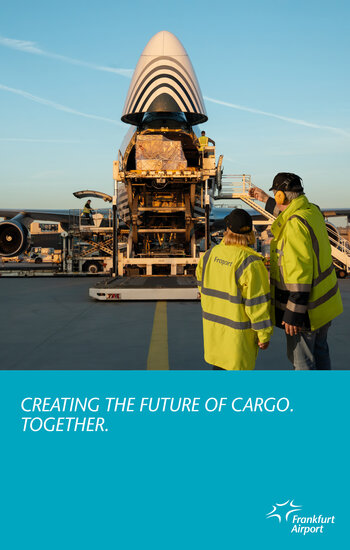… and it urgently needs polishing. This was the opinion of a market expert familiar with the matter in reaction to the announced withdrawal of the cargo handling agent, DNATA, from Cologne/Bonn Airport (CGN), CargoForwarder Global reported. The farewell of the handling agent which belongs to the Emirates Group, will take place on 31DEC25. CGN Management is now looking for a new operator for its 12,000 m2 Cologne Bonn Cargo Center. Otherwise, cargo airlines threaten to relocate their traffic.
Last year, 840,000 tons of air freight were handled at CGN. Although this was 30,000 tons less than in 2023, it was still a significant amount and secured CGN third place in the German cargo airport ranking after Frankfurt/Main (FRA) and Leipzig (LEJ). The crux of the matter: 95% of the volume was contributed by integrators; namely UPS, DHL and FedEx and their feeders. Only 30,000 tons were accounted for by the general cargo segment, for which the Cargo Center was originally built.

Downward spiral
Three years ago, it was three times as much. Since then, however, some carriers such as Egyptair Cargo, or Iceland’s Bluebird, have moved away, while others like MNG now fly less frequently to CGN. Canadian carrier, Cargojet, has disappeared completely due to a change in its business model, as has Amazon’s Prime Air, which preferred Liège to Cologne. This drain on capacity could not or only partially be compensated for and continuously drove down the tonnage handled in the cargo center. Ergo: ground handling agent DNATA incurred massive losses. A company manager declined to comment.
A multitude of factors
There is no plausible explanation as to why standard cargo has steadily decreased at CGN. At least not an official one. Some people familiar with the local circumstances say that the airport is too expensive and the ground processes are too inflexible. Others criticize that CGN keeps a low profile and is not visible enough at air freight events and in the media, this way falling short of promoting its cargo opportunities. Some hold that management focuses primarily on the passenger business and the express sector, courting UPS, FedEx, DHL at alia but pays little attention to acquiring traditional cargo airlines.
This said, the federal state of North Rhine-Westphalia, whose largest city is Cologne (1.1 million), is an industrial hotspot. According to official figures, goods and services worth around EUR 794 billion were produced there in 2022. This makes NRW the state with the strongest economy, ahead of Bavaria and Baden-Württemberg. The industrial economic output of its 18 million inhabitants beats those of Saudi Arabia, Poland, Sweden or Belgium.
Favorable conditions
The geographical location is also favorable. This is because the two major European transport routes intersect here: the North-South axis between Scandinavia, London including the southern part of the UK, and northern Italy, and the East-West axis between Rotterdam and Antwerp at the North Sea, and dynamic eastern European countries such as the Czech Republic and Poland. The federal state is also home to international corporations such as Deutsche Post/DHL (logistics/transport), Thyssenkrupp (mechanical engineering), Bayer AG (chemicals/pharmaceuticals), Henkel (consumer brands/adhesive technologies), Rheinmetall (defense) and others.
Against this background, the annual throughput of 30,000 tons of general cargo in Cologne/Bonn almost sounds like a joke. Most of the air freight produced in North Rhine-Westphalia is trucked to Amsterdam, Luxembourg, Frankfurt or Liège. Apparently, the conditions for air freight are more inviting there.
Former visions vanished into thin air
“Alongside passenger traffic and express freight, general air freight is to become the third pillar of our business model,” trumpeted the former airport CEO and cargo-minded, Michael Garvens, at the colorful opening of the Cologne Bonn Cargo Center on 27MAR2009. This was certainly also what investor DNATA was hoping for when it took over the cargo handling business from operator Wisskirchen in 2015. It was the agent’s first step into the German handling market. As is now known, this turned out to be an extremely loss-making exercise that will end on 31DEC25. Until then, airport management must present a new operator to run the facility and secure jobs, otherwise the general cargo segment might disappear at CGN. Applicants are welcome.




